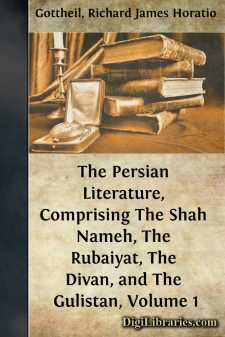Categories
- Antiques & Collectibles 13
- Architecture 36
- Art 48
- Bibles 22
- Biography & Autobiography 813
- Body, Mind & Spirit 142
- Business & Economics 28
- Children's Books 17
- Children's Fiction 14
- Computers 4
- Cooking 94
- Crafts & Hobbies 4
- Drama 346
- Education 46
- Family & Relationships 57
- Fiction 11829
- Games 19
- Gardening 17
- Health & Fitness 34
- History 1377
- House & Home 1
- Humor 147
- Juvenile Fiction 1873
- Juvenile Nonfiction 202
- Language Arts & Disciplines 88
- Law 16
- Literary Collections 686
- Literary Criticism 179
- Mathematics 13
- Medical 41
- Music 40
- Nature 179
- Non-Classifiable 1768
- Performing Arts 7
- Periodicals 1453
- Philosophy 64
- Photography 2
- Poetry 896
- Political Science 203
- Psychology 42
- Reference 154
- Religion 513
- Science 126
- Self-Help 84
- Social Science 81
- Sports & Recreation 34
- Study Aids 3
- Technology & Engineering 59
- Transportation 23
- Travel 463
- True Crime 29
Our website is made possible by displaying online advertisements to our visitors.
Please consider supporting us by disabling your ad blocker.
The Persian Literature, Comprising The Shah Nameh, The Rubaiyat, The Divan, and The Gulistan, Volume 1
Categories:
Description:
Excerpt
THE SHAH NAMEH
According to the traditions of former ages, recorded in the Bastan-nameh, the first person who established a code of laws and exercised the functions of a monarch in Persia, was Kaiumers. It is said that he dwelt among the mountains, and that his garments were made of the skins of beasts.
His reign was thirty years, and o'er the earth
He spread the blessings of paternal sway;
Wild animals, obsequious to his will,
Assembled round his throne, and did him homage.
He had a son named Saiamuk, a youth
Of lovely form and countenance, in war
Brave and accomplished, and the dear delight
Of his fond father, who adored the boy,
And only dreaded to be parted from him.
So is it ever with the worldвÐâthe parent
Still doating on his offspring. Kaiumers
Had not a foe, save one, a hideous Demon,
Who viewed his power with envy, and aspired
To work his ruin. He, too, had a son,
Fierce as a wolf, whose days were dark and bitter,
Because the favoring heavens in kinder mood
Smiled on the monarch and his gallant heir.
вÐâWhen Saiamuk first heard the Demon's aim
Was to o'erthrow his father and himself,
Surprise and indignation filled his heart,
And speedily a martial force he raised,
To punish the invader. Proudly garbed
In leopard's skin, he hastened to the war;
But when the combatants, with eager mien,
Impatient met upon the battle-field.
And both together tried their utmost strength,
Down from his enemy's dragon-grasp soon fell
The luckless son of royal Kaiumers,
Vanquished and lifeless. Sad, unhappy fate!
Disheartened by this disastrous event, the army immediately retreated, and returned to Kaiumers, who wept bitterly for the loss of his son, and continued a long time inconsolable. But after a year had elapsed a mysterious voice addressed him, saying:вÐâ"Be patient, and despair notвÐâthou hast only to send another army against the Demons, and the triumph and the victory will be thine.
"Drive from the earth that Demon horrible,
And sorrow will be rooted from thy heart."
Saiamuk left a son whose name was Husheng, whom the king loved much more even than his father.
Husheng his name. There seemed in him combined,
Knowledge and goodness eminent. To him
Was given his father's dignity and station.
And the old man, his grandsire, scarcely deigned
To look upon another, his affection
For him was so unbounded.
Kaiumers having appointed Husheng the leader of the army, the young hero set out with an immense body of troops to engage the Demon and his son. It is said that at that time every species of animal, wild and tame, was obedient to his command.
The savage beasts, and those of gentler kind,
Alike reposed before him, and appeared
To do him homage.
The wolf, the tiger, the lion, the panther, and even the fowls of the air, assembled in aid of him, and he, by the blessing of God, slew the Demon and his offspring with his own hand. After which the army of Kaiumers, and the devouring animals that accompanied him in his march, defeated and tore to pieces the scattered legions of the enemy....


